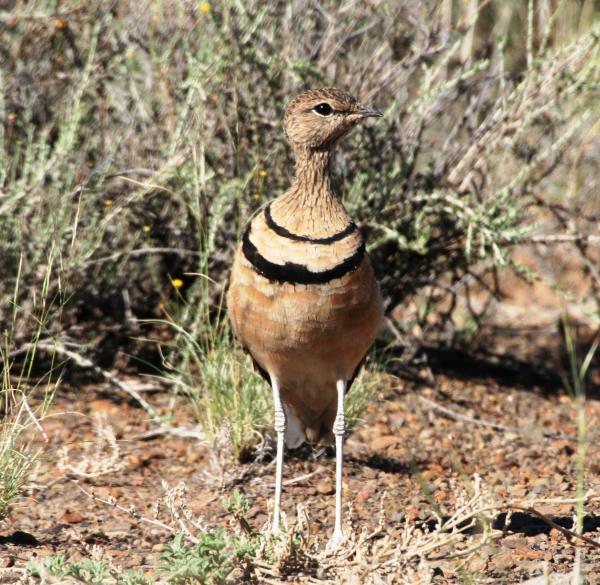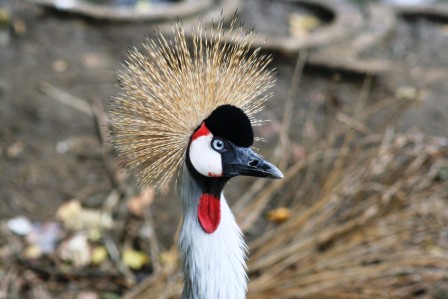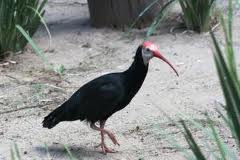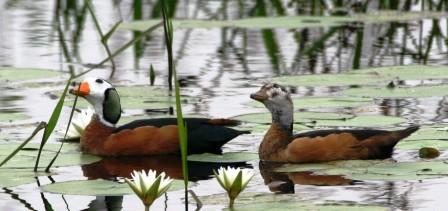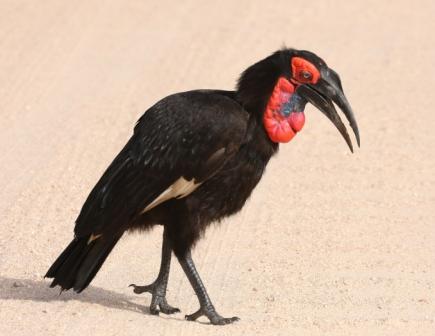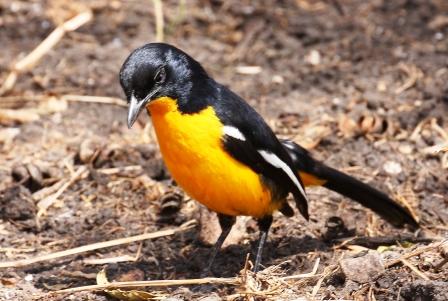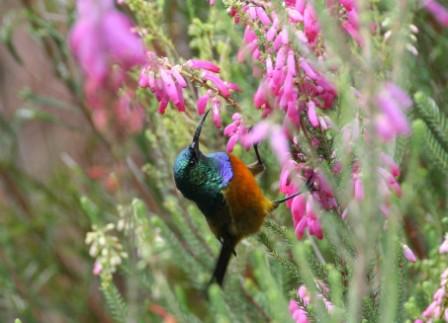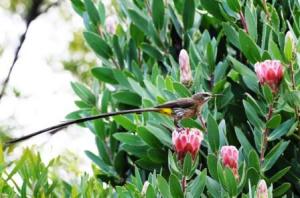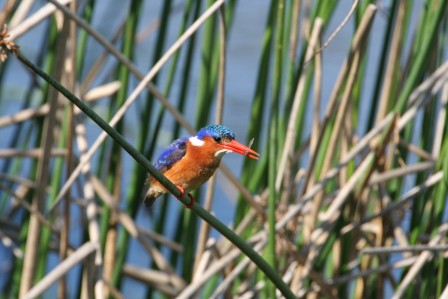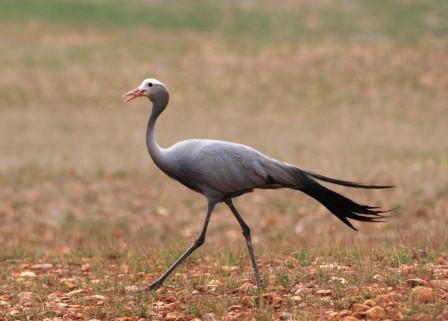|
|
JOIN OUR MAILING LIST |
|
Newsletter / Blog 2012-04-15 Rare bird sighting in Netherlands – Surf Scoter The sighting of a Surf Scoter in the Netherlands is very rare. Today at 3 pm an adult male was seen at Texel – Mokbaai [NH] by Sander Schagen. Surf Scoter The Surf Scoter - Melanitta perspicillata - is a large sea duck, which breeds in Canada and Alaska. Description The males are entirely black with a white patch on the forehead and a larger white triangle on the nape. They have large bills, which are swollen on the top and truncated on the sides, with black feathers extending to near the nostrils. The bill is multicolored white, red, yellow and black, appearing mostly orange from a distance. The legs and feet are reddish-orange with dusky webs, and the iris is white. The female surf scoter is fairly uniformly colored dark to black-brown with occasional whitish feathers. There are two whitish patches on the cheeks below the eyes. The bill is greenish-black or bluish-black. The legs and feet are dull orange and the iris is pale or brown. Female plumages of all scoter species are similar. The surf scoter hen can be differentiated from the black scoter by the more sloping forehead and white face patches. Call Usually silent. Male makes low, clear whistle. Female makes croaking "krraak." Food Feeds mainly on mollusks, crustaceans, aquatic insects, small fish and on green plant matter such as pondweeds, wild celery, muskgrass and the seeds of sedges and bulrushes. Rarely diving in water that exceeds 30 feet deep, they forage in the zone of breaking waves, easily diving through wave crests. Breeding The lined nest is built on the ground close to the sea, lakes or rivers, in woodland or tundra. The female lays between 5 to 8 eggs. The incubation period is about 28 to 30 days. The offspring will fledge independently at about 55 days. Conservation Status – Least Concern While Surf Scoters remain reasonably numerous, there is evidence of a considerable decline in the early part of the century. A decline may be still be occurring, especially in the northwest, possibly due to pollution losses at sea. Least numerous of the scoters worldwide. Birdwatching Ask Aves Birding Tours/Safaris/Adventures to create a custom tour for you to see these sea ducks. |
| Back | Back to top |
 |  | Cape Town Tourism 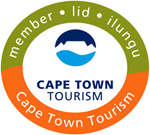 |
|||||||||||||

